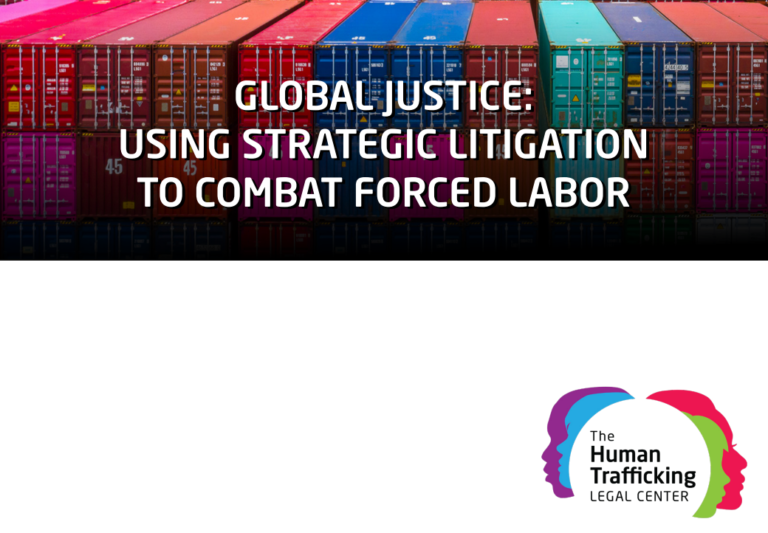Forced labor is a feature, not a bug, in today’s global economic system. Forced labor spans the globe. It involves multinational corporations. It is found in special economic zones—and war zones. And it is in everyone’s backyard. Globally, 27.5 million people are victims of forced labor—domestic workers, construction crews, agricultural and factory laborers, and others in every part of our economy. Ending forced labor will require a worldwide movement—one led by strategic litigation against its perpetrators, its governmental facilitators, and its beneficiaries. Already there is real progress. Under laws such as the United States’ Trafficking Victims Protection Reauthorization Act (TVPRA), plaintiffs have the right to sue traffickers for the damages the victims have sustained. As of December 31, 2021, trafficking-victim plaintiffs had filed 539 civil cases under the TVPRA. Courts have ordered more than $265,009,825 in settlements and judgments for damages. Strategic litigation often involves complex jurisdictional issues and an intricate interplay of international law and policy. Litigators must consider the choice of the defendant and who can be best held accountable. Strategic litigation is a mechanism to force nations to confront the challenges of forced labor. And it has the ability to demand corporate accountability by increasing the financial risk and the reputational harm to companies. A single case can have wide-ranging effects—even without a final verdict. An out-of-court settlement can be enough to lead to industry-wide reforms, as was the case with a TVPRA lawsuit against a commercial fishing vessel. And still-pending private suits can lead law enforcement agencies to initiate criminal investigations. In European courts, companies and other private parties are being held liable if they knew, or should have known, that forced labor was being used at any point along the supply chain. Further,courts are increasingly willing to hold corporate directors personally liable for the forced labor that occurred on their watch. Under new “due diligence” laws, companies can be held liable for any harm that could have been prevented if they had fulfilled this due diligence vigilance requirement. Strategic litigation is an essential tool to hold state actors and corporations accountable for their involvement in forced labor. Countries are being sued for investing in projects or contracting with companies relying on forced labor. Courts are compensating plaintiffs. And that is exactly what strategic litigation aims to do: Compensate the people directly involved, while catalyzing systemic change in legislatures, in courts, in business, and beyond.

